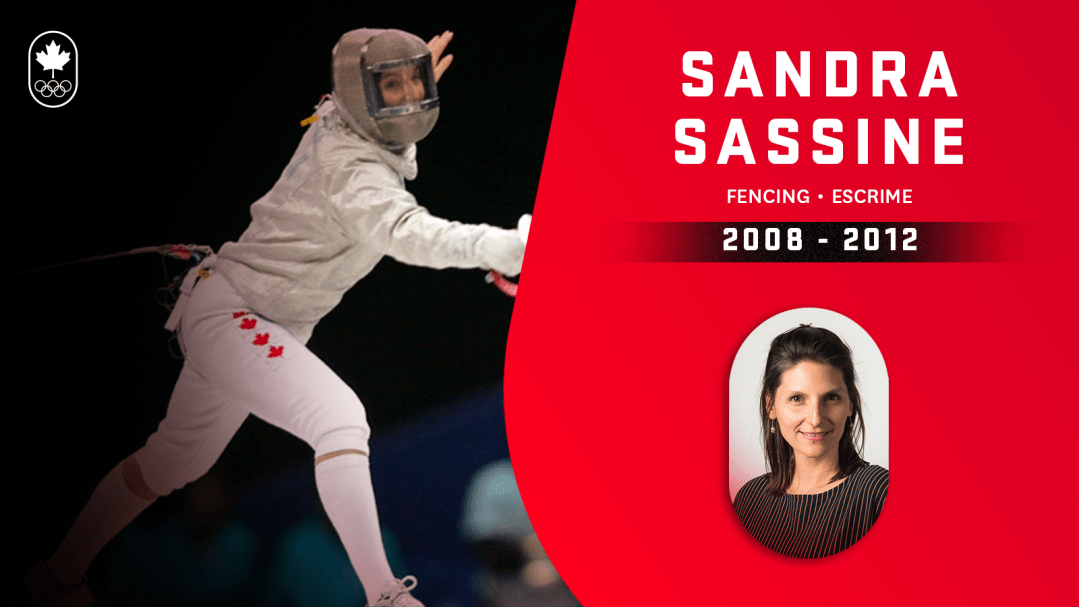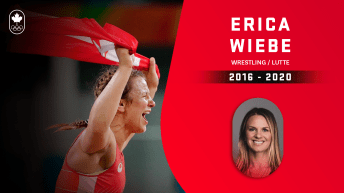Team Behind the Team: Meet Sandra Sassine, two-time Olympian in fencing & Manager of Athlete Marketing and Olympian Legacy at the COC
The Canadian Olympic Committee (COC) is proud to put athletes at the heart of everything it does. At all levels of our organization, from our Board of Directors to our interns, our team is comprised of people who truly believe in the power of sport – including an impressive group of Olympians, Paralympians, Pan American Games athletes, former national team athletes, rec league athletes, and passionate sport lovers. In this series, we’ll share stories from members of our team who have competed at major multi-sport Games and who are now dedicating their professional lives to helping the next generation of Team Canada athletes live their dreams.
Sandra Sassine is a two-time Olympian who competed at Beijing 2008 and London 2012 in fencing. In addition to her full time work at the COC, Sassine has recently become the owner of her father’s Coeur de Lion fencing club in Montreal — something she deeply cherishes.
This interview has been edited for length and clarity
What’s your role at the COC?
I graduated with a physical education degree and was a teacher when I started a decade ago as a coordinator with the Olympic Education Team. My job was to transform athletes’ stories into something educational, so that students could be inspired by athletes through different stories. One of the reasons I wanted to join the COC was to tell the diverse stories of our Canadian athletes.
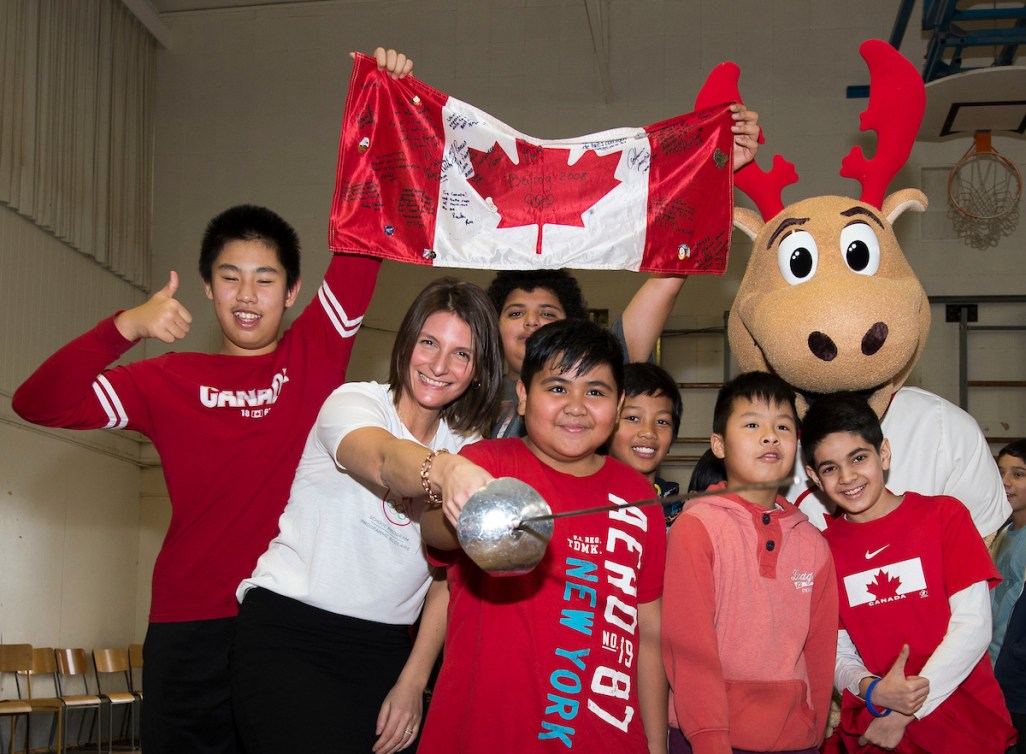
Coming from a small sport (fencing) that is not well known in Canada and only in the spotlight at the Olympic Games, I had a lot of challenges and frustrations as an athlete. I wanted to help change that by sharing the complete picture of what an athlete is about, not only the performances on the field of play.
Fast forward to 2019, I transitioned into the role of Athlete Marketing and Olympian Legacy Manager. The main goal of my team is to empower Team Canada Olympians to be the best role models of the Olympic Movement. We aim to maximize athlete engagement opportunities with various stakeholders and Olympic brands, support legacy work from Olympians who give back to their communities, and protect athlete performance with well-designed athlete engagement protocols.
What Does Sport Mean to You?
My father came to Canada, from Egypt, in 1965 and was involved in a lot of sports. He built a fencing empire in the small town of Chibougamau, Quebec and moved to Montreal in the late ’90s when he established the Coeur de Lion Fencing Club. When I was 13, my father, a physical education teacher responsible for extracurricular sport activities in the city, needed a gymnastics coach so he put me on a bus to do a level one teaching course. That’s how my coaching career started.
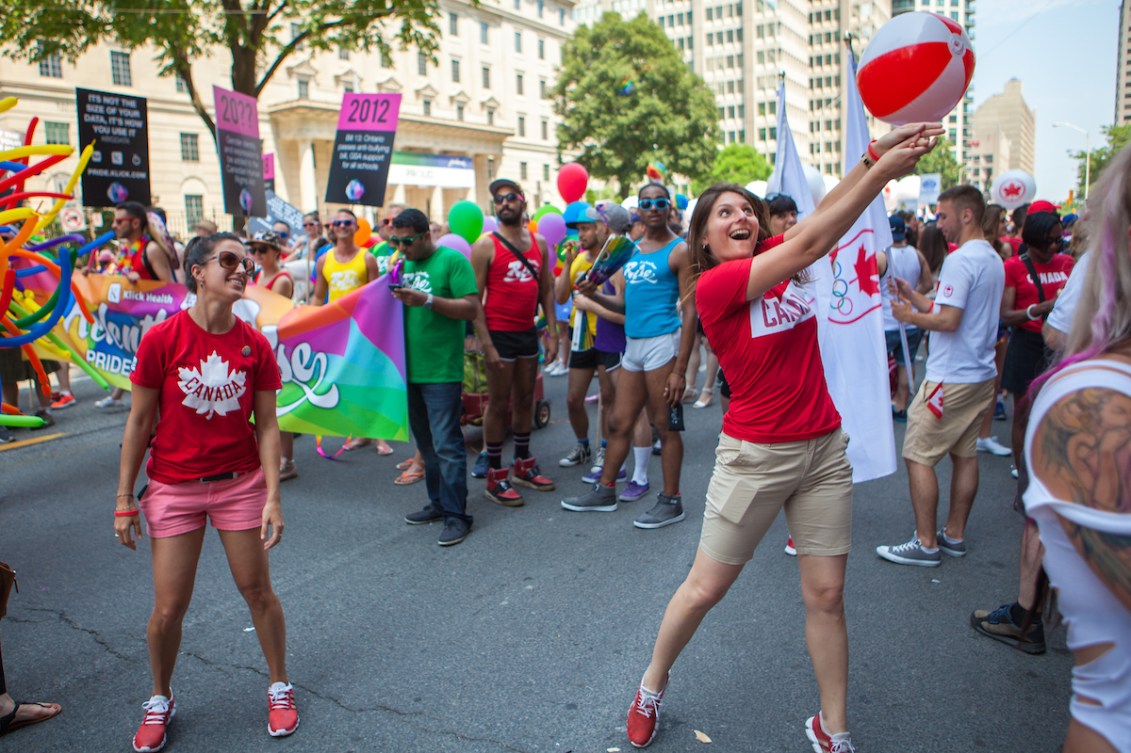
I had the privilege to grow up with amazing role models like my mother, who’s one of the only women maître d’armes in Canada. Sport brings me a lot of joy but comes with many challenges. It’s a way of life. I’ve made lifelong friends everywhere in the world through the sports community, including my best friend Marie-Ève Marleau OLY.
My partner of 23 years and father of my six-year-old daughter, Lu Bonnet, is a badminton player and we met each other through sports in college. Lu taught me to play badminton. We played together in various provincial tournaments and we were opponents at university — he played for Université de Montréal and I played for UQAM. Sport shaped the life I have now and will for the rest of my life.
How much does the frustration you spoke about feeling as an athlete from a small sport that was often overlooked impact your role at the COC?
Quite a bit actually. As an athlete, you focus on your everyday, what you can do to be at your best and look for support so you don’t feel alone in your quest. Now that I work at the COC, I see that sport is so much more than just your own little world as an athlete.
For the first 20 years of my career, I received a small amount of financial support from partnerships. After competing at Beijing 2008, I was able to secure enough funding during my last four years to end my career debt-free and it was all because of storytelling and building relationships with corporate partners.
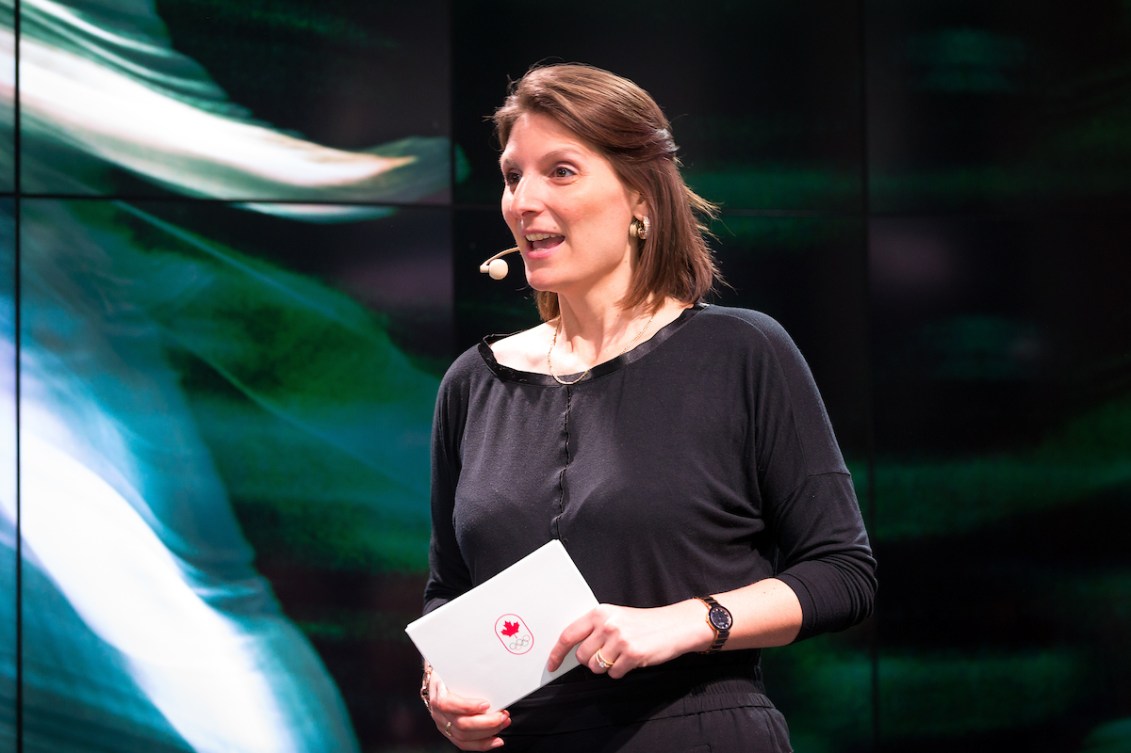
Now instead of pitching myself, my team is building bridges between partners and Team Canada athletes. I’m happy to say we have seen an increase in the number of athletes that are impacted by these engagement strategies. It’s not always the same sport that we see; it’s not always the same names. Whenever I have a chance to make it an open call, I do that. We created a Facebook group which now counts 550 Olympians so that anyone looking to connect and engage has an opportunity to do so.
I’m also very proud that for almost four years now, I have been leading the OLY Canada Legacy Grant, providing funding that supports the incredible work athletes are doing within their communities. We have supported 32 different projects so far, including one for sustainability in rowing by Olympic gold medallist Brenda Taylor OLY who is “powering the sport towards a carbon free future.” In the long run, my hope is that we can help all applicants not just monetarily. Any Olympian that wants to do something in their community, there’s a way for us to help them.
What does it mean to the sports community that there are many retired athletes now working at the COC?
As staff and Olympians, we’re coming with in-depth knowledge of the sport system and what the Olympic quest looks like for an athlete. The strong connection we’ve built with the athlete community during our careers definitely makes a difference when athletes knock on our doors. There’s an ease in connecting with us for guidance and direction.
After almost 10 years at the COC and supporting five Olympic Games in various roles, I have an appreciation of just how important the team is behind the team. We are consulted on various athlete programs to share our perspective, which is authentic and based on experience. As an Olympian, you don’t realize how much work is being done behind the scenes to make sure that everything is in place for you to perform to your greatest potential.
When you’re working on Team Canada’s Olympic Games Mission Team, that’s exactly how we want the athletes to feel. We want them to focus and think about what they need to do to have the best Olympic experience of their life. The opportunity to positively impact the athlete journey on the road to the Olympic Games fills me with a lot of energy in my work. Every single COC staff contributes to Team Canada’s success in various ways and as an Olympian, it’s such an honor to play my part.

